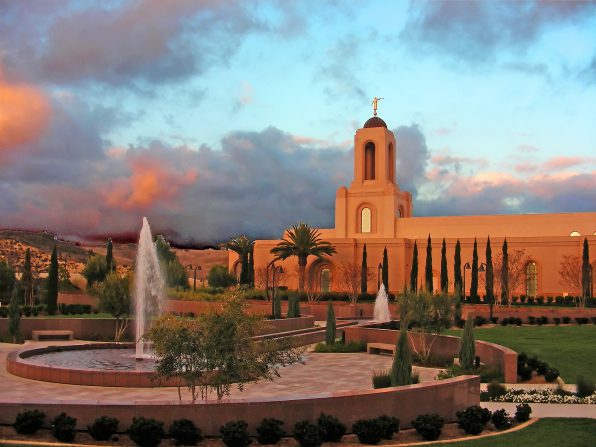
For the 28 October 2018 edition of the Interpreter Radio Show, Steve Densley, Craig Foster, and James Goldberg joined for a discussion of new Interpreter articles, church history, and — in something of a first for the program — literature and poetry (particularly James Goldberg’s own). A recording of the show, shorn of commercial breaks, is now available online, at the website of the Interpreter Foundation:
***
From southern California, in an area that I know pretty well:
“Irvine Synagogue Hit With Anti-Semitic Vandalism”
“Members of the Christian, Mormon and Muslim communities” . . . Such formulations — by no means uncommon — may give you some idea as to why President Russell M. Nelson’s encouragement to use the actual name of the Church of Jesus Christ of Latter-day Saints could do some real good.
***
A reminder from the invaluable (though, at the moment, sadly under the weather) Robert Boylan of Ireland:
“Stephen Smoot, Et Incarnatus Est: The Imperative for Book of Mormon Historicity”
And another approach to the same topic, from Book of Mormon Central:
“Why Is the Book of Mormon’s Historical Authenticity So Important?”
***
I am, alas, under absolutely no delusion that Brigham Young University, where I teach, is exempt from, or untouched by, the left-leaning viruses, endemic to American higher education, to which Graham Hillard refers in the article below. But BYU is still a reasonably diverse place, politically and intellectually speaking — I know that some will scoff at that claim, but it remains true nonetheless — and conservatives haven’t yet been hunted from its classrooms and hallways:
***
I’m really proud of the Church for establishing and supporting this program:
“Ten Years of BYU–Pathway Program Brings Education to Tens of Thousands”
***
Finally, three quotations from President Dallin H. Oaks, first counselor in the First Presidency of the Church of Jesus Christ of Latter-day Saints:
Tolerance obviously requires a non-contentious manner of relating toward one another’s differences. But tolerance does not require abandoning one’s standards or one’s opinions on political or public policy choices. Tolerance is a way of reacting to diversity, not a command to insulate it from examination.
You can never get enough of what you don’t need, because what you don’t need won’t satisfy you.
Our priorities are most visible in how we use our time. Someone has said, “Three things never come back—the spent arrow, the spoken word, and the lost opportunity.” We cannot recycle or save the time allotted to us each day. With time, we have only one opportunity for choice, and then it is gone forever.










